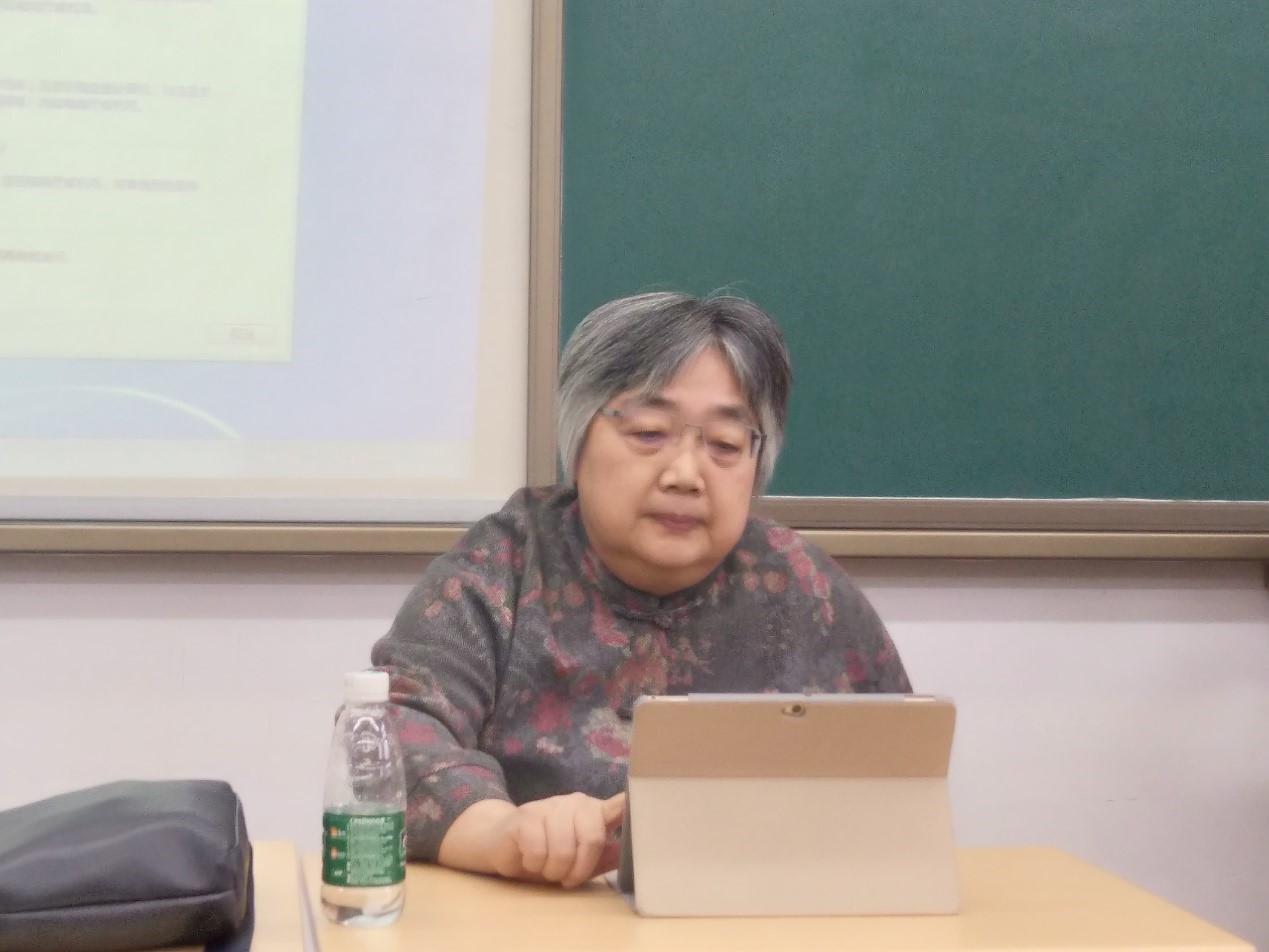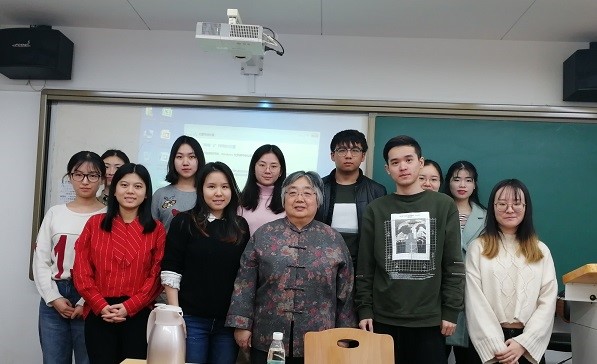Li Yanduan, who is currently a member of the UN Committee on the Elimination of Racial Discrimination and vice chairman. She was the Counsellor of the Office of the Special Representative of the Ministry of Foreign Affairs of the People's Republic of China in the Hong Kong Special Administrative Region, the Counselor of the Ministry of Foreign Affairs of the People's Republic of China, and the Deputy Consul General of the Consulate General of the People's Republic of China in Sydney, counsellor of the Department of Treaty and Law, Special Representative of the Ministry of Foreign Affairs of the People's Republic of China on Climate Change Negotiations, ambassador of the People's Republic of China to the Independent State of Samoa (former).
On the morning of November 15, 2018, the 346th Global Human Rights Forum series was held at A209, Research Building, College Road Campus, China University of Political Science and Law. Ambassador Li was invited to give a lecture on the theme of “The Way in which United Nations Human Rights Bodies Operate and their Evolution”, focusing on the working methods of human rights bodies, the main problems of human rights treaty bodies and their possible reform directions. And in conjunction with her own work experience, she introduced the UN Committee on the Elimination of Racial Discrimination.

At the beginning of the lecture, Ambassador Li mentioned that there are three ways to operate the human rights mechanism. The first one is the mechanism established under the UN Charter, such as the UN General Assembly, the Economic and Social Council, the Human Rights Council, etc. The second is based on international human rights treaties. There are currently ten treaty mechanisms. The third is based on mechanisms established by the resolutions of the General Assembly, the Economic and Social Council and the Human Rights Council, such as the special rapporteur system.
On this basis, Ambassador Li made a detailed introduction to the International Convention on the Elimination of All Forms of Racial Discrimination with the theme of the treaty mechanism. The treaty mechanism is based on the premise of the state and is equal to all countries. The composition of the committee is independent, professional and the lack of political nature. The views put forward are easily accepted by the State party and stakeholders. The treaty bodies include three main functions. The first is consideration of periodic reports of States parties. The State party has an obligation to submit reports on a regular basis in accordance with the Treaty, explaining its compliance, problems faced and progress made. The shadow report provided by NGOs also plays a very important and irreplaceable role in explaining the situation in the country. The second is consideration of individual communications. The International Convention on the Elimination of All Forms of Racial Discrimination provides optional provisions for individual communications in this article rather than in the Protocol. The third is consideration of communications between States. The State party’s allegations are usually based on an optional system based on the consent of the State party, while the International Convention on the Elimination of All Forms of Racial Discrimination provides for a stronger enforcement mechanism without the need to rely on optional clauses, and the Committee on the Elimination of Racial Discrimination has the power to deal with any Allegations between the States parties. In this regard, Ambassador Li introduced the case of “Palestine v. Israel”.
However, since the establishment of the first human rights treaty body in 1970, the treaty bodies have been criticized for their operation. The main problems are as follows: 1) poor coordination between treaty bodies, some rights in human rights treaties intersect, and the lack of cooperation between treaty bodies and the Human Rights Council may lead to repeated reviews by a State on the same issue; 2) the burden of writing reports by States parties is overwhelming, many countries fail to submit reports overdue; 3) issues raised in the dialogue between the Committee and the State party May cause dissatisfaction in the State party. For example, the Disambiguation Committee has criticized the Indian caste system, India will not submit a report thereafter; 4) concluding observations are not easy to be recognized and implemented by the State Party; 5) a large backlog of State party reports and individual communications make The Committee overwhelmed; 6) the treaty body lacks visibility and limited influence; 7) the treaty body does not have the capacity to fully understand the situation of the State party; 8) the selection process of the committee’s experts has less consideration of the expert’s professional level and lacks terms of reference, resulting in half of the expert seats are occupied by some countries for a long time. 9) there is a contradiction between the Secretariat and the Commission.
Regarding the future reform plan, there are different opinions. A merger was proposed to establish a separate super-committee to replace the committees, which means the State party submitted only one report and submitted a concluding suggestion at the time of the review to reduce the burden on the State party. However, there are problems in how to coordinate between the committees, and the financial funds may not be reduced as a result. Ambassador Li proposed that there are currently three kinds of expectations. Firstly, strengthen and expand the functions and influences of treaty bodies and through more contacts with NGOs and other subjects, truly and comprehensively understand the state party and promote the implementation of the treaty by the State party. Secondly, the treaty body function has greatly exceeded the scope of the Convention and should limit the functions of treaty bodies. Thirdly, maintain the status quo.
During the lecture, students enthusiastically asked questions about the individual communication procedures of the UN Committee on the Elimination of Racial Discrimination and expressed their views. Ambassador Li also suggested students that improve language skills, actively participate in internships in government departments and international organizations, and exercise in practice. Finally, the lecture ended with applause.

Written by SONG Wenhao